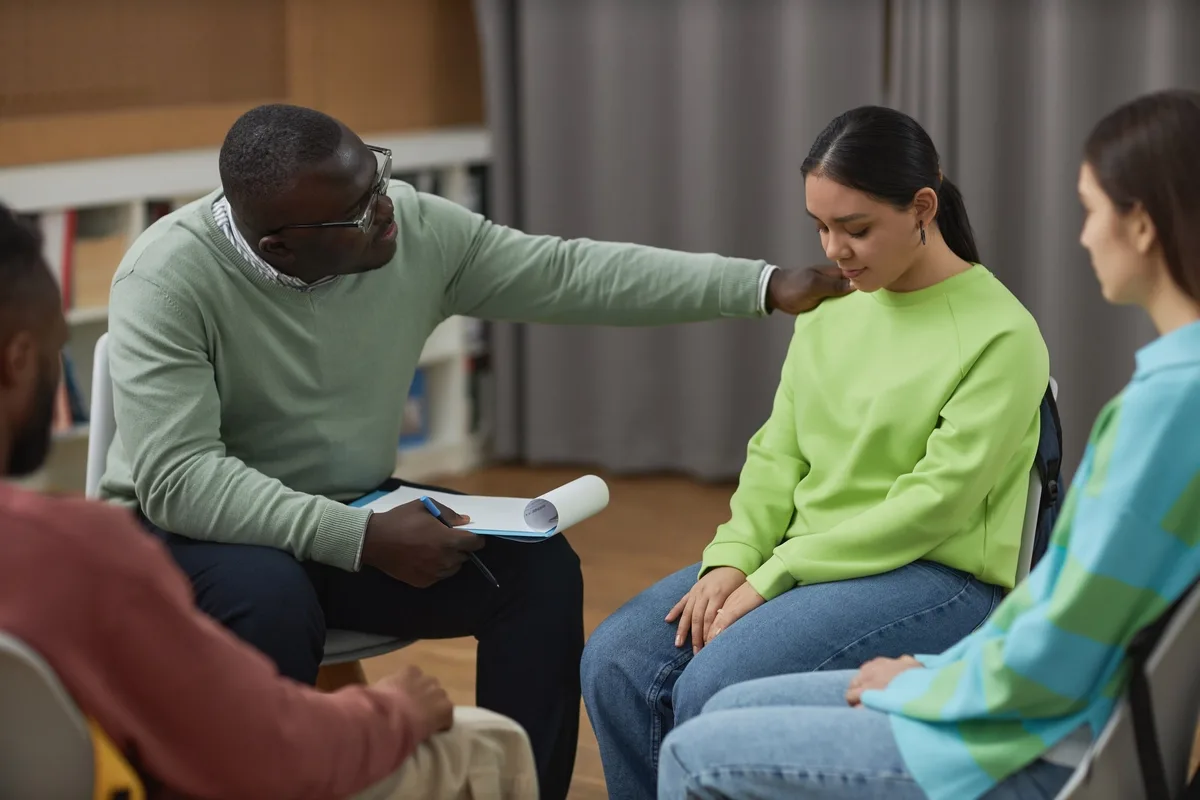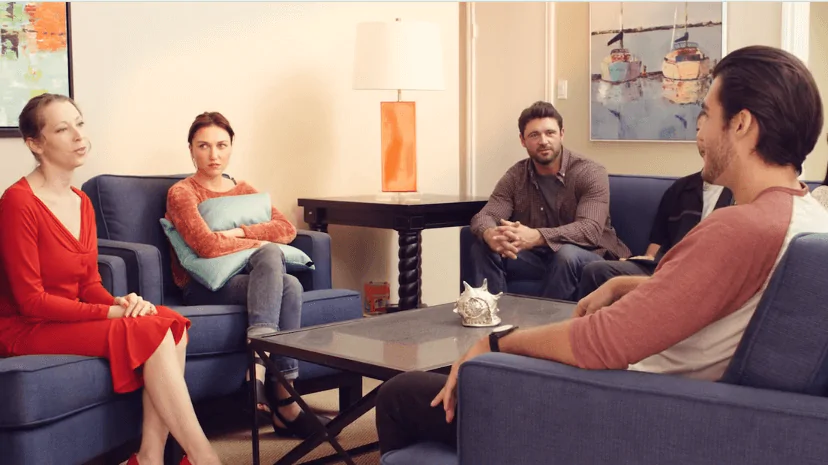24/7 Helpline:
(866) 899-111424/7 Helpline:
(866) 899-1114
Learn more about Bipolar Disorder Treatment centers in Santa Barbara
Bipolar Disorder Treatment in Other Cities

Other Insurance Options

Horizon Healthcare Service

Anthem

Choice Care Network

Providence

MHNNet Behavioral Health

Amerigroup

Coventry Health Care

EmblemHealth

WellPoint

Health Partners

Aetna

Excellus

WellCare Health Plans

GEHA

MVP Healthcare

State Farm

Optum

Premera

Magellan Health

Optima

Santa Barbara Cottage Hospital – Detox Program
Santa Barbara Cottage Hospital is a dual diagnosis facility based in Santa Barbara, California. The ...

Sanctuary Centers
Sanctuary Centers of Santa Barbara is a non-profit rehab located in Santa Barbara, CA. Sanctuary Cen...

Santa Barbara Cottage Hospital – Behavioral Health
Santa Barbara Cottage Hospital - Behavioral Health offers inpatient and outpatient services for indi...

Santa Barbara Rescue Mission
The Santa Barbara Rescue Mission's Men's Residential Treatment Program is a 12-month, faith-centered...

All Star Recovery
All Star Recovery is a Sober Living facility for men that are in a recovery process from a Chemical ...

New House
New House is a structured recovery residence for men, located in Santa Barbara, California. The prog...

Cottage Outpatient Center of San Luis Obispo
Cottage Outpatient Center of San Luis Obispo is a private rehab located in Santa Barbara, California...

New House III
Located in Santa Barbara, California, New House III is a drug and alcohol rehab that supports adult ...

Changes Outpatient Wellness Center
Changes Outpatient Wellness Center offers inpatient and outpatient services for individuals with alc...

The Giving Tree Sober Living Homes for Women
The Giving Tree Sober Living Homes for Women is a sober living home for women in recovery from alcoh...

Full Spectrum Recovery & Counseling
Full Spectrum Recovery & Counseling is an outpatient treatment dedicated to provide services for sub...

Adult Mental Health Services
Adult Mental Health Services is a private rehab located in Santa Barbara, California. Adult Mental H...

Alsana
Alsana is a private rehab located in Santa Barbara, California. Alsana specializes in the treatment ...

Salvation Army Transition and Recovery Center
Salvation Army Transition and Recovery Center is a non-profit rehab located in Santa Barbara, Califo...

Zona Seca
Zona Seca is a private rehab located in Santa Barbara, California. Zona Seca specializes in the trea...

Daniel Bryant Youth and Family Center
Daniel Bryant Youth and Family Center offers outpatient treatment for individuals with alcohol and/o...







Alan Counseling
Alan Counseling is a private rehab located in Santa Barbara, California. Alan Counseling specializes...

AA – Alcoholicos Anonimos – Ultima Llamada
AA – Alcoholicos Anonimos – Ultima Llamada is a non-profit rehab located in Santa Barbara, Californi...

New Vistas Treatment Program
New Vistas Treatment Program is a private rehab located in Santa Barbara, California. New Vistas Tre...

Casa Serena – Castillo Street
Casa Serena – Castillo Street is a non-profit rehab located in Santa Barbara, California. Casa Seren...

Pacific Pride Foundation
Pacific Pride Foundation is a private rehab located in Santa Barbara, California. Pacific Pride Foun...

Alano Club
Alano Club is a non-profit rehab located in Santa Barbara, California. Alano Club specializes in the...

Al – Anon Family Group
Al – Anon Family Group is a non-profit rehab located in Santa Barbara, California. Al – Anon Family ...

Council on Alcoholism and Drug Abuse – Adult Outpatient Treatment
Council on Alcoholism and Drug Abuse - Adult Outpatient Treatment offers outpatient treatment for in...

Phoenix of Santa Barbara
Phoenix of Santa Barbara is a private rehab located in Santa Barbara, California. Phoenix of Santa B...

AA – Alcoholics Anonymous – Central Office
AA – Alcoholics Anonymous – Central Office is a non-profit rehab located in Santa Barbara, Californi...

Casa Serena Treatment Programs for Women
Casa Serena is a residential program in Santa Barbara for women struggling with addiction. The Missi...

Council on Alcoholism and Drug Abuse – Recovery Detox
Council on Alcoholism and Drug Abuse – Recovery Detox is a private rehab located in Santa Barbara, C...

SOS Sober Living for Women
SOS Sober Living for Women is a private rehab located in Santa Barbara, California. SOS Sober Living...

Council on Alcoholism and Drug Abuse
Council on Alcoholism and Drug Abuse is a private rehab located in Santa Barbara, CA. Council on Alc...

Monarch Recovery
Monarch Recovery is a private rehab located in Santa Barbara, California. Monarch Recovery specializ...

Santa Barbara Rescue Mission – Bethel House
Santa Barbara Rescue Mission – Bethel House is a drug and alcohol rehab that supports women with sub...

La Ventana Treatment Programs
La Ventana Treatment Programs - East Arrellaga Street offers intensive outpatient programs for indiv...

Reset Summer Camp – Digital Detox
Reset Summer Camp – Digital Detox is a private rehab located in Santa Barbara, California. Reset Sum...

Santa Barbara County Child and Family Mental Health
Santa Barbara County Child and Family Mental Health is a public rehab located in Santa Barbara, Cali...

Casa Serena – Oliver Road
Casa Serena – Oliver Road is a non-profit rehab located in Santa Barbara, California. Casa Serena – ...


